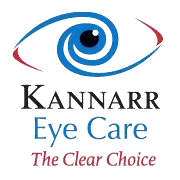
Macular degeneration represents one of the most significant causes of vision loss in older adults. According to the Centers for Disease Control and Prevention, an estimated 1.8 million people currently suffer from macular degeneration, with an additional 7.3 million people at risk of developing this condition. Understanding the causes of and treatments for macular degeneration allow you to receive the optometry care needed to curb the incidence and progression of this disease.
What Is Macular Degeneration?
Dry macular degeneration is a chronic eye disease in which the macula, a portion of the retina, deteriorates. When light enters the eye, it hits the retina, which lies on the back of the eyeball. Neural signaling from cells in the retina allows us to see clearly. If the macula degenerates, it cannot transmit visual signals to the brain, leading to blurred vision or a blind spot in the central portion of the visual field. A less common form of the disease, called wet macular degeneration, occurs when blood vessels behind the retina leak fluid, causing changes in central vision.
Curbing Macular Degeneration
Certain characteristics put individuals at a higher risk of developing macular degeneration. Being Caucasian, growing older, and having a family history of macular degeneration are strong risk factors outside of your control. Other risk factors, such as obesity, smoking, poor diet, cardiovascular disease, and high cholesterol can be modified through lifestyle change.
To prevent macular degeneration, optometrists recommend incorporating healthy fruits and vegetables into your diet, reducing caloric intake to manage your weight, quitting smoking, increasing physical activity, and reducing your consumption of saturated and trans fats to lower your cholesterol. Your doctor can help you construct a healthy diet and lifestyle plan to reduce your risk.
Currently, dry macular degeneration is irreversible. However, it often progresses slowly and certain treatments may reduce the rate of progression. Annual visits to the optometrist to receive an eye exam are essential to monitoring the condition. Your eye doctor may recommend taking supplements, as high levels of vitamins A, C, and E as well as zinc and copper may reduce the progression of macular degeneration. Increasing your intake of omega-3 fatty acids and lutein may also help, although more research is needed to confirm the efficacy of these treatments.
Treatment for wet macular degeneration may include injection of prescription medications, photodynamic therapy, or laser treatment to destroy abnormal blood vessels and prevent new vessel growth. In very advanced cases of macular degeneration, an optometrist may recommend surgery to implant a telescopic lens in one eye.
Sources:
American Health Assistance Foundation (2012). Macular degeneration research: About macular degeneration.
Mayo Clinic (2012): Macular degeneration.
